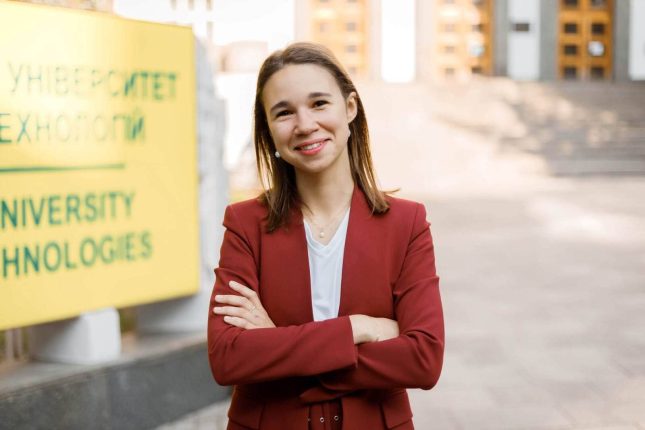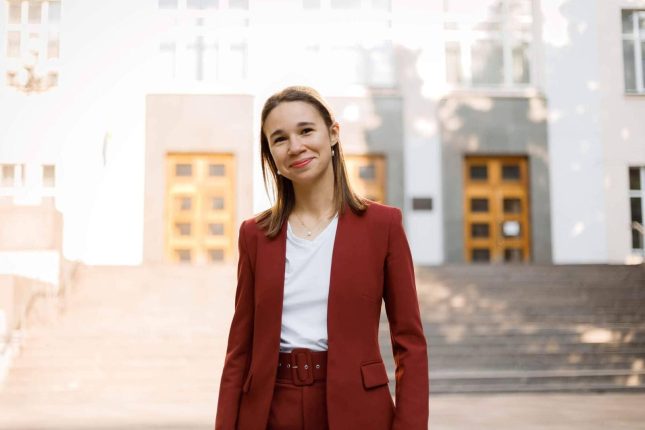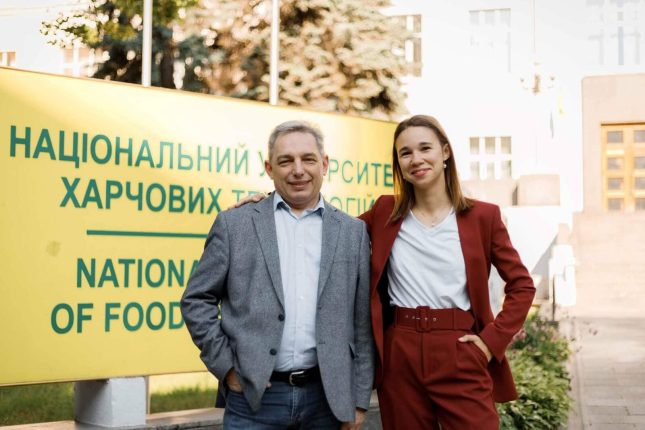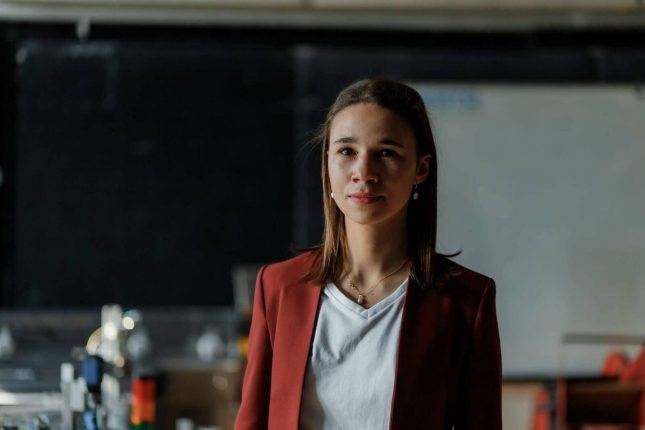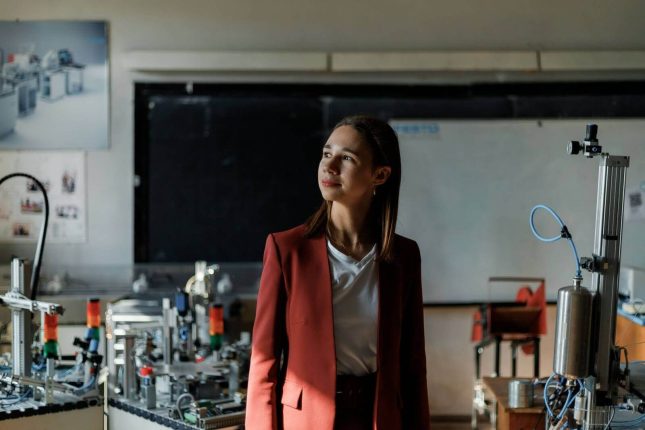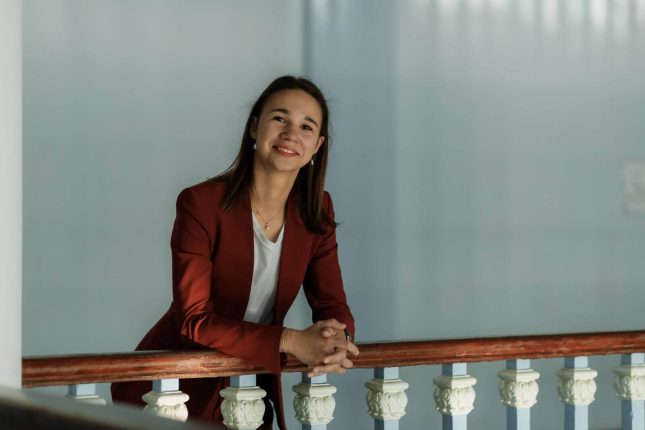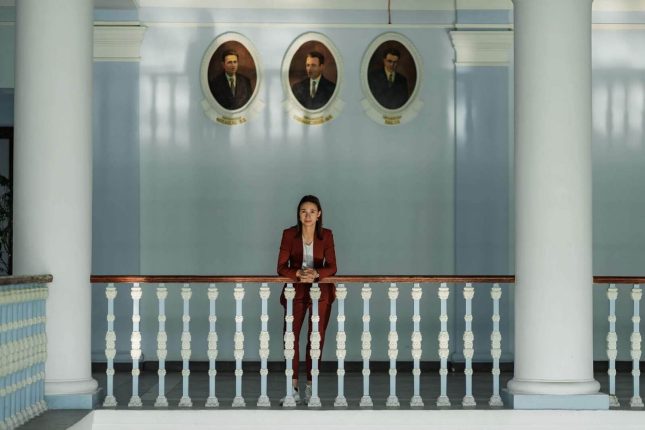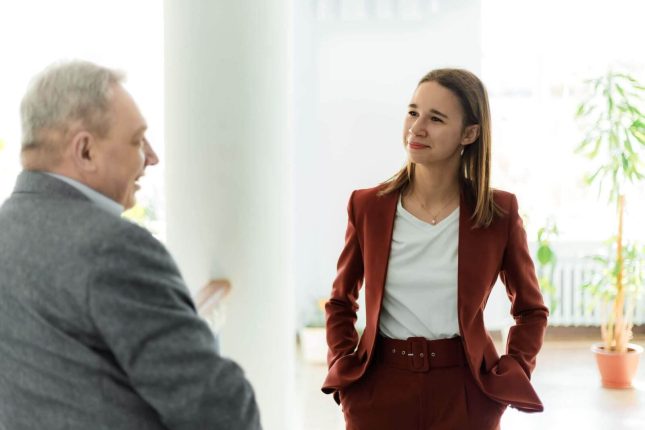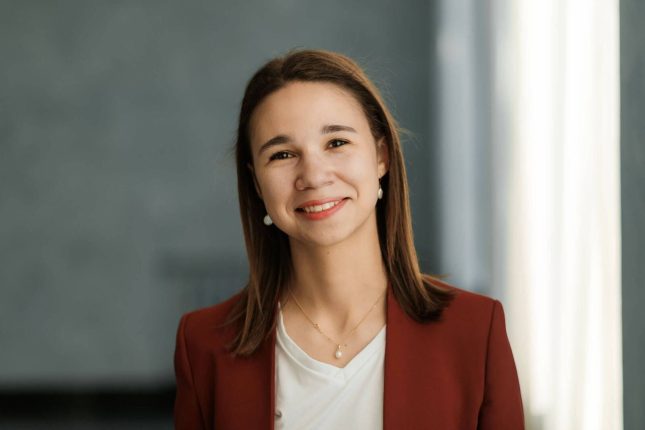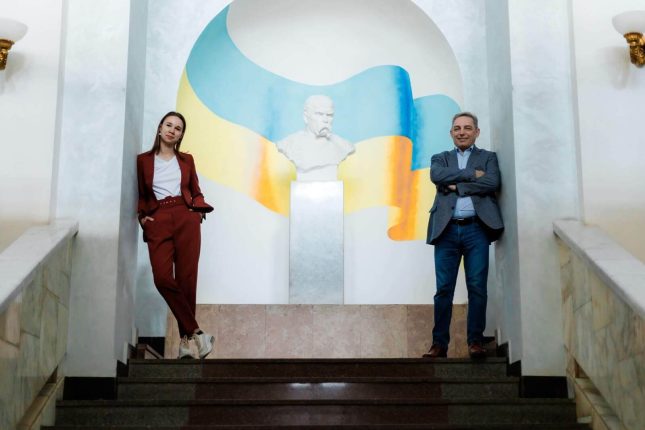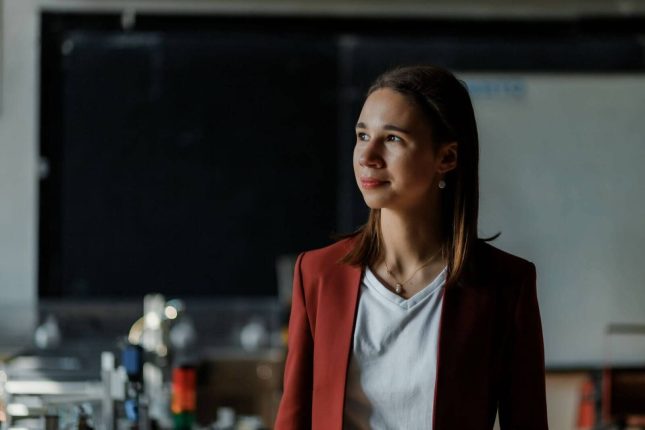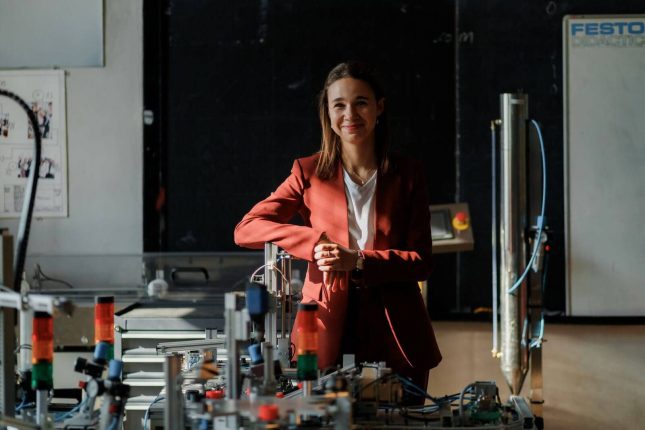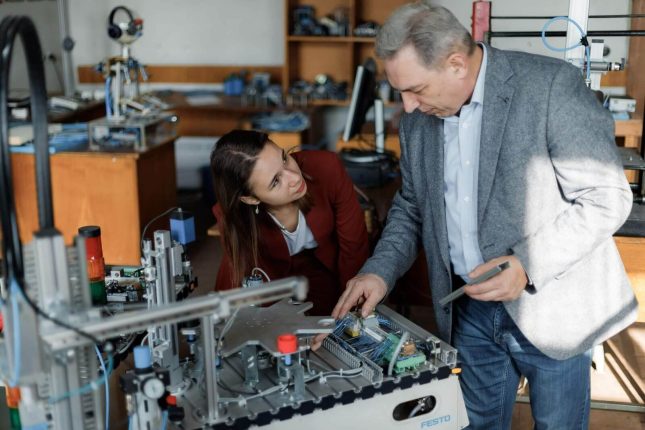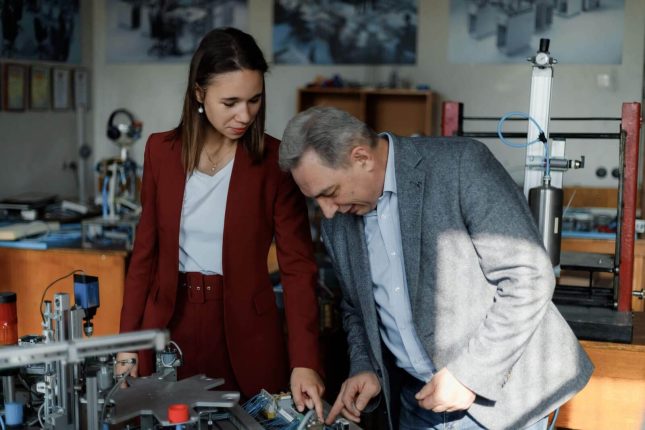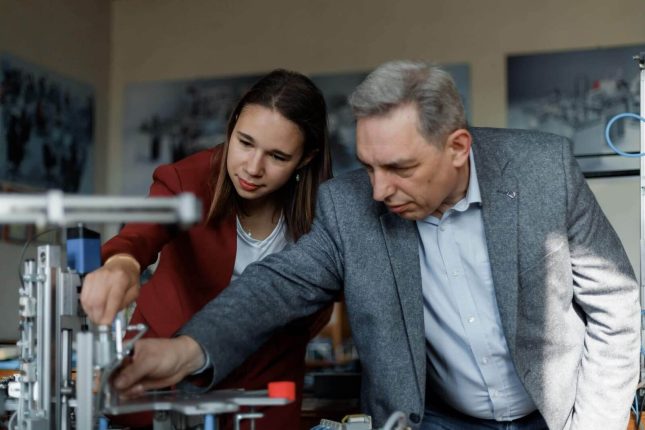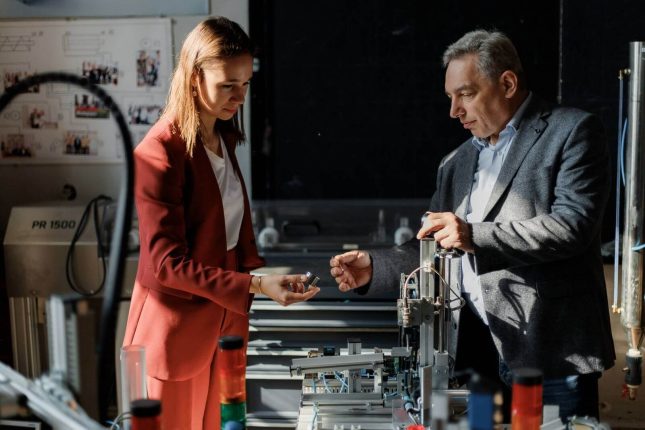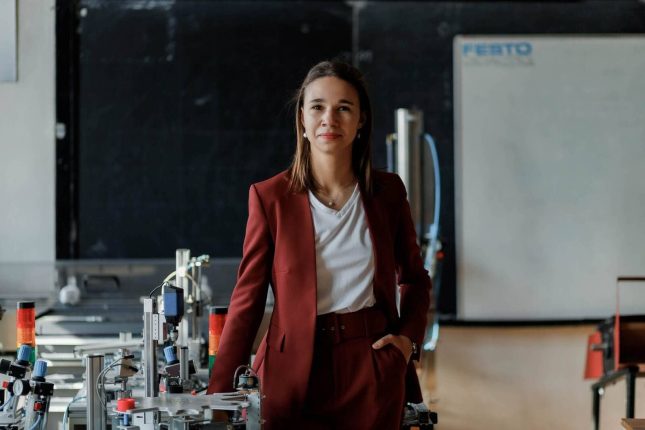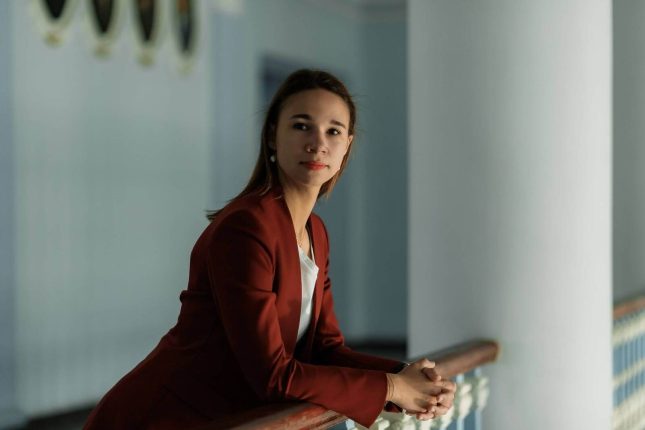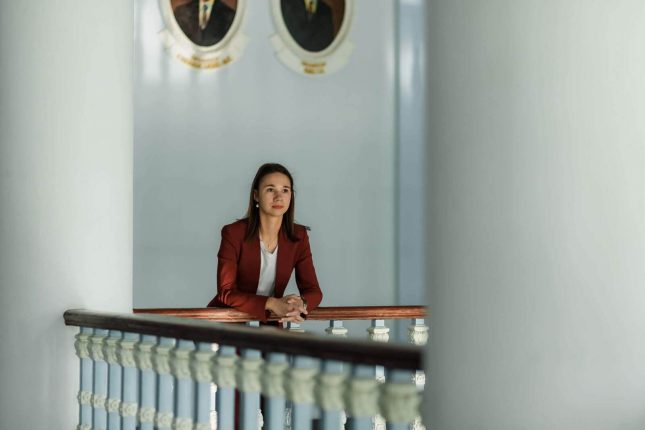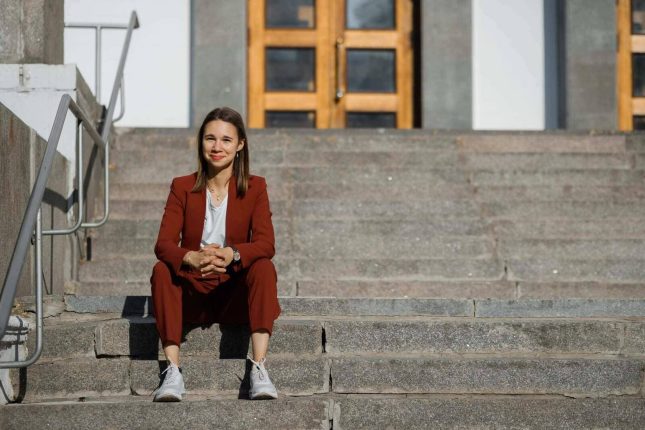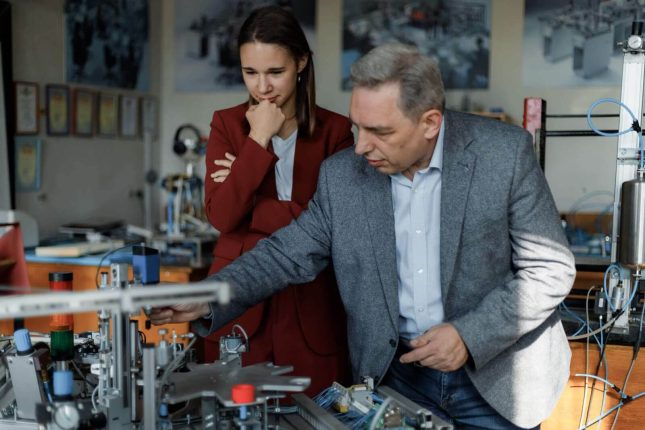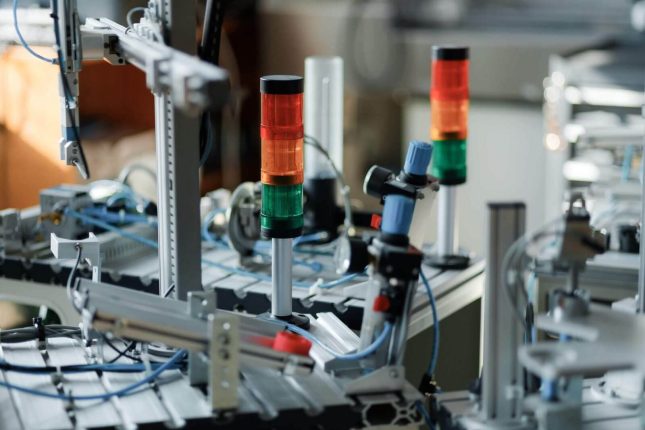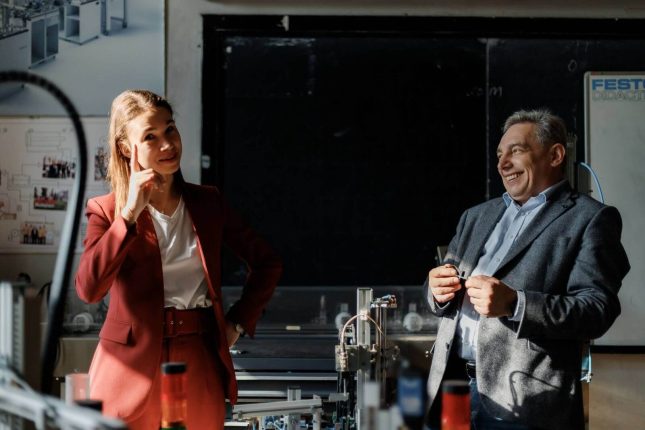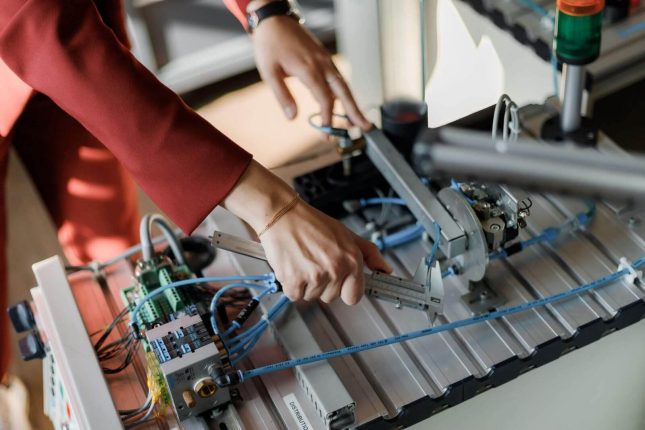
Mariia has chosen green energy: setting up a breakthrough start-up in Ukraine
07/06/2024
Mariia Alipatova, aged 24, is the founder of a green energy start-up focused on helping Ukrainians have access to light, even during blackouts. The Erasmus for Young Entrepreneurs (EYE) programme helped her to understand where she should move to achieve success in her business and contribute to the development of her country.
Mariia has chosen green energy to facilitate Ukraine’s development
As a child, Mariia dreamed of becoming an inventor. Having grown up, she followed her calling and entered the National University of Food Technologies to study on the ‘Mechanical Engineering’ and ‘Accounting and Auditing’ programmes.
During her studies, Mariia became interested in green energy, an area she believes is key to the future of the whole world.
“It is important for me to contribute to society. I want Ukraine to be a leader in green energy. I want the best solar energy solutions to be associated, first of all, with Ukraine,” says Mariia.
Together with her thesis supervisor (who is now a co-founder of her start-up), Mariia developed the Solar Optic technology that allows its users to illuminate building interiors with direct sunlight. The project became the winner of a hackathon in Berlin. The student and her teacher received a grant to further develop the technology.
“Our technology includes solar concentrators that ensure the illumination of one-story buildings, for example warehouses or factories, in the daytime. These are not solar panels that convert heat into electricity. The concentrated sunlight is guided via a fibre optic cable and distributed inside the building. Our technology helps factory owners to reduce electricity costs and carbon emissions,” explains Mariia.
Mariia was in Spain when Russia launched its full-scale invasion of Ukraine. It was dangerous to return home, so she started to look for programmes and internships abroad that could be useful to her. Then she learned about Erasmus for Young Entrepreneurs. Mariia understood that the exchange programme for entrepreneurs was the best option for the development of her start-up and applied for the programme.
What is Erasmus for Young Entrepreneurs?
Erasmus for Young Entrepreneurs is an EU-funded cross-border exchange programme for new or aspiring entrepreneurs. New entrepreneurs having up to three years of experience in running a business can apply for the programme. It gives them the chance to learn from experienced entrepreneurs running small businesses in other participating countries. New entrepreneurs receive monthly financial assistance, the amount of which will depend on a country of stay.
Experienced entrepreneurs willing to benefit from fresh and innovative perspectives on their business can also participate in the programme as hosts for new entrepreneurs.
Mariia knew exactly where she wanted to have on-the-job-training
To apply for the programme, Mariia had to develop a business plan and a strategy, which were very beneficial to her. The exchange programme helped Mariia to understand how to work on her technology.
The young entrepreneur knew exactly where she wanted to have on-the-job training – she wanted to train at a company dealing with renewable energy sources. She compiled a list of five favourites, with the Swedish company Absolicon on top. Mariia liked the fact that the host entrepreneur had provided the detailed description of her work at the company. And she wasn’t mistaken – Absolicon helped her to unlock her potential.
“The on-the-job training was a great experience. The host entrepreneur – Joakim Byström, founder and CEO of the company – became my good friend. I got so much knowledge from him that I had never received anywhere else in my life,” notes Mariia.
Mariia got an experience she had never dreamed of
At Absolicon, Mariia worked eight hours a day for four months. During this time, she learned how to build a team for a start-up and work with it. She also learned how to communicate with potential clients in green energy. Moreover, Mariia learned what resources were needed to launch a production line for such equipment. She often worked in different teams, so she got comprehensive knowledge and learned how to launch a production line in Ukraine.
In her free time, Mariia went to a warehouse and helped engineers to assemble solar thermal panels. A trip to a Carlsberg factory became the most interesting experience for her during her participation in the programme. At first, Mariia developed a strategy for connecting panels at the factory, and then, together with a team of engineers, she installed them. This was the first time she had installed solar thermal panels in real conditions.
Moreover, Mariia was responsible for the development of the company’s website and important calculations posted on it.
“Each European city needs a sufficient amount of heat to use for heating and water heating. We calculated how many solar concentrators needed to be installed for 100 European cities to cover 20 per cent of the total consumption maximum. We posted these calculations on the website and the company found several clients,” says Mariia.
The company’s founder was the author of the idea to prepare the calculations, and Mariia developed their format. And the host entrepreneur was very satisfied with the project results.
A fresh perspective on Mariia’s project
Every week, the host entrepreneur paid attention to Mariia’s project for several hours. He helped Mariia to prepare a pitch for investors and provided consultations on a business plan and technology improvements. It turned out that Solar Optic is suitable only for one-story buildings, because otherwise the efficiency of sunlight transmission through a cable is lost. Moreover, the pricing policy for the technology changed due to inflation and the cost of the delivery of materials.
“The programme helped me to make these important conclusions. My host entrepreneur from Sweden supported me a lot in everything,” says Mariia.
However, Mariia missed her home, where she couldn’t return because of the war. Sometimes, it was very difficult for her to stay in Sweden, but her favourite business made her stronger.
An invitation to work in Sweden
After the completion of the on-the-job training, Absolicon didn’t want to bid farewell to Mariia, and she was offered a job. However, Mariia wanted to work on the development of her own technology and launch a production line in Ukraine, so she had to reject the offer.
Nevertheless, she has remained on good terms with the entire team and has been keeping in touch with the host entrepreneur. When Mariia finds any information that could be useful for Absolicon, she sends it to the company’s founder. And the founder, in his turn, does the same.
The EYE Innovator Award
Mariia’s thirst for knowledge turned out to be very strong, so, after completing the EYE exchange, she applied for a nine-month acceleration programme for start-ups. Once, she received an e-mail regarding the opportunity for participants of the EYE programme to apply for the Innovator Award 2023. To apply, candidates had to make a short video and talk about the experience gained during their exchange.
“I made a video including animation and photos and submitted it for the competition. As a result, I became one of the two finalists of the Innovator Award,” says Mariia.
Those few seconds before the announcement of the winners at the award ceremony were very exciting. Mariia admits that her heart was about to jump out of her chest, but she comforted herself with the thought that she had done everything she could. When Mariia heard that she was the winner, she couldn’t believe her ears.
“When they said my name, I was shocked at first. I was very happy to show my project on the stage. But at the same time, I was sad for the other finalist from Latvia. She had a very interesting project on psychological health,” admits Mariia.
The winner got the opportunity to attend a conference for small and large enterprises in Bilbao, Spain. At the event, she established a lot of useful contacts and improved her skills in negotiating with potential clients and partners. Moreover, at the conference, Mariia applied for a competition for start-ups, which she also won.
Mariia’s project is already at the final stage
Mariia has now returned to Ukraine and set up her own company. Together with a team, she is working on the development of the latest version of her technology prototype to test the functionality in real-world conditions. The project is almost at the final stage, and there are already several potential customers. Currently, Mariia wants to work in Ukraine, because she believes that her technology will be highly beneficial to Ukrainians, especially during blackouts.
“My motivation is to work for the sake of my country and personal development, because I can see a perspective in this. I want Ukraine to be independent from all other types of fuel that it extracts or imports,” emphasises Mariia.
Mariia advises everyone who wants to participate in the Erasmus for Young Entrepreneurs programme to find their field of activity. If you clearly know what you want and choose a host entrepreneur that works in your niche, you can gain very valuable experience that will help you to develop your own business. Mariia also advises not to be shy to ask questions and engage in all activities.
The number of Erasmus for Young Entrepreneurs participants from Ukraine has increased dramatically
Alina Rudnytska, national expert of the Erasmus for Young Entrepreneurs programme from the intermediary organisation Civitta Ukraine, says that since the start of Russia’s full-scale invasion of Ukraine, the number of Ukrainians participating in the programme has increased dramatically. The main reason is that many people found themselves abroad and were looking for opportunities for their personal fulfilment. At the same time, the war became an impetus for some people not to postpone their dreams of setting up their own business, but to act immediately. So, the Erasmus for Young Entrepreneurs programme has become a powerful driver for the development of many Ukrainians.
The European Commission has simplified the application terms for Ukrainians – the programme is also open for Ukrainians who left Ukraine after 24 February 2022. According to the programme eligibility criteria, new entrepreneurs have to have less than three years of experience in running a business.
There is no age limit for the programme participants, but all participants must be over 18 years old. There are also no restrictions related to business areas.
“You can apply for an exchange if you have any business idea. There are certain areas that are more common among participants – education, marketing, a hotel and catering industry. But in general, there were different cases – e-commerce, beekeeping, or honey production,” says Alina Rudnytska.
An exchange can last from one to six months. The duration depends on activities, exchange objectives, and the motivation of new and host entrepreneurs. An intermediary organisation will support new entrepreneurs in everything during the whole exchange period.
How to apply for Erasmus for Young Entrepreneurs
If you are a new or aspiring entrepreneur, to apply for the programme, you have to register via the website. In the registration form, you have to state your personal data and an intermediary organisation in Ukraine that will act as your local contact point throughout the programme and help you to prepare for your exchange. There are ten intermediary organisations in Ukraine. They are available here.
You have to answer several questions regarding yourself and your expectations for the exchange, and upload your CV and a business plan. The intermediary organisation will help you to prepare all the documents.
After your application is approved, you will communicate with a host entrepreneur and sign documents for the exchange.
If you have any questions, you can consult the Programme Guide, which is available here.
Author: Sofiia Mindzhosa
Stories
-
Katarina Mathernova: If Ukraine had a human face and a human spirit, it would be 10-year-old Roman Oleksiv
-
A regional mission to drive social entrepreneurship: the story of Ksenia Kosukha
-
EU restores safe water supply for 100,000 Ukrainians affected by war
-
Promoting IT during the war: Lviv IT cluster and how EU4Digital helps
-
Frontline digitalisation: Kharkiv IT Cluster collaborations
-
How EU4Youth is driving opportunity and success among young Ukrainians
